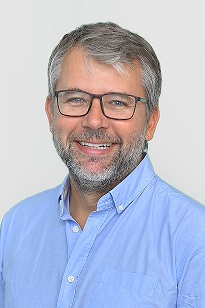
Manuel Ramon Castillo
Hospital Universitario Nuestra Señora de Candelaria, Santa Cruz de Tenerife
Spain
Program of identification and attention to patients with advanced chronic diseases
Introduction
In developed countries, the increase in life expectancy entails an important increase in the elderly population group that usually suffers from chronic diseases. Their progression or complications will usually be responsible for the deterioration of their quality of life and physical decline that It will lead to his death as the ultimate cause. In this process there will be present frequently multiple physical and emotional ailments that potentially cause suffering avoidable with palliative interventions and that would require a specific evaluation and treatment. Taking into account the above, there are several initiatives that propose an improvement of the attention to this group of patients that start from an identification of those of special risk and that would include those with worse vital expectations or greater symptomatic burden. To these patients there would be offered an individualized care plan with the incorporation, in those that need it, of treatments or palliative measures carried out by their habitual sanitary teams or in those of greater complexity by specialized teams in palliative care. These approaches have been shown in numerous studies to improve the quality of life and the way in which patients and families face complex processes and decisions without producing as a consequence a decrease in their survival.
Objective
To identify in the hospital environment patients with chronic diseases with limited life prognosis exploring in these the presence of palliative needs.
Methodology
It is intended to develop a project in three different centers that includes the Internal Medicine and Geriatrics Units of the University Hospital Nuestra Señora de Candelaria, the San Juan de Dios Hospital and the Febles Campos Hospital.
Type of study
Given the complexity associated with a project with these characteristics, it´s programmed a mixed-methods study with the realization of various steps with different types of studies that are interdependent :
A. Retrospective observational study.
As a starting point and to enable a subsequent evaluation of the impact of the implementation of a specific program of care for this group of patients as well as to establish who are the patients of higher vulnerability it is intended to review the mortality in the previous year of the services involved.
B. Prospective cohort study.
After obtaining the results of the previous evaluation, it will start a project for the identification of hospitalized patients with chronic diseases with limited life prognosis by exploring this specifically with the PROFUND Index and their possible palliative needs through the NECPAL tool.
Since, to our knowledge, both indexes/scales have not been used in a coordinated manner and with the intention to evaluate not only the viability of its application but also the possible results of its systematic incorporation into clinical practice it is proposed to carry out a pilot study that includes all patients consecutively hospitalized in the target services for a period of three months. From their initial assessment the patients will be classified in two groups or cohorts (Worst vital or PROFUND + prognosis and / or presence of Paliative Needs or NECPAL + versus those with better vital prognosis or PROFUND – and / or Absence of Palliative Needs or NECPAL -) monitoring their evolution during the period of one year.
C. Qualitative phenomenological study.
Anticipating the possible ethical dilemmas that could be faced by the care team that treats these patients habitually when using tools (despite being validated) that make estimates about survival and that refer to palliative care It is proposed to carry out a qualitative complementary evaluation through semi-structured interviews to these professionals (doctors and nurses) before and after the period of study. In these interviews it will be explored their beliefs, knowledge and experiences about what it implies to start an exclusive or complementary palliative treatment. After the conclusion of the study, an attempt will be made to examine in depth the possible change caused by their participation in this Project.
